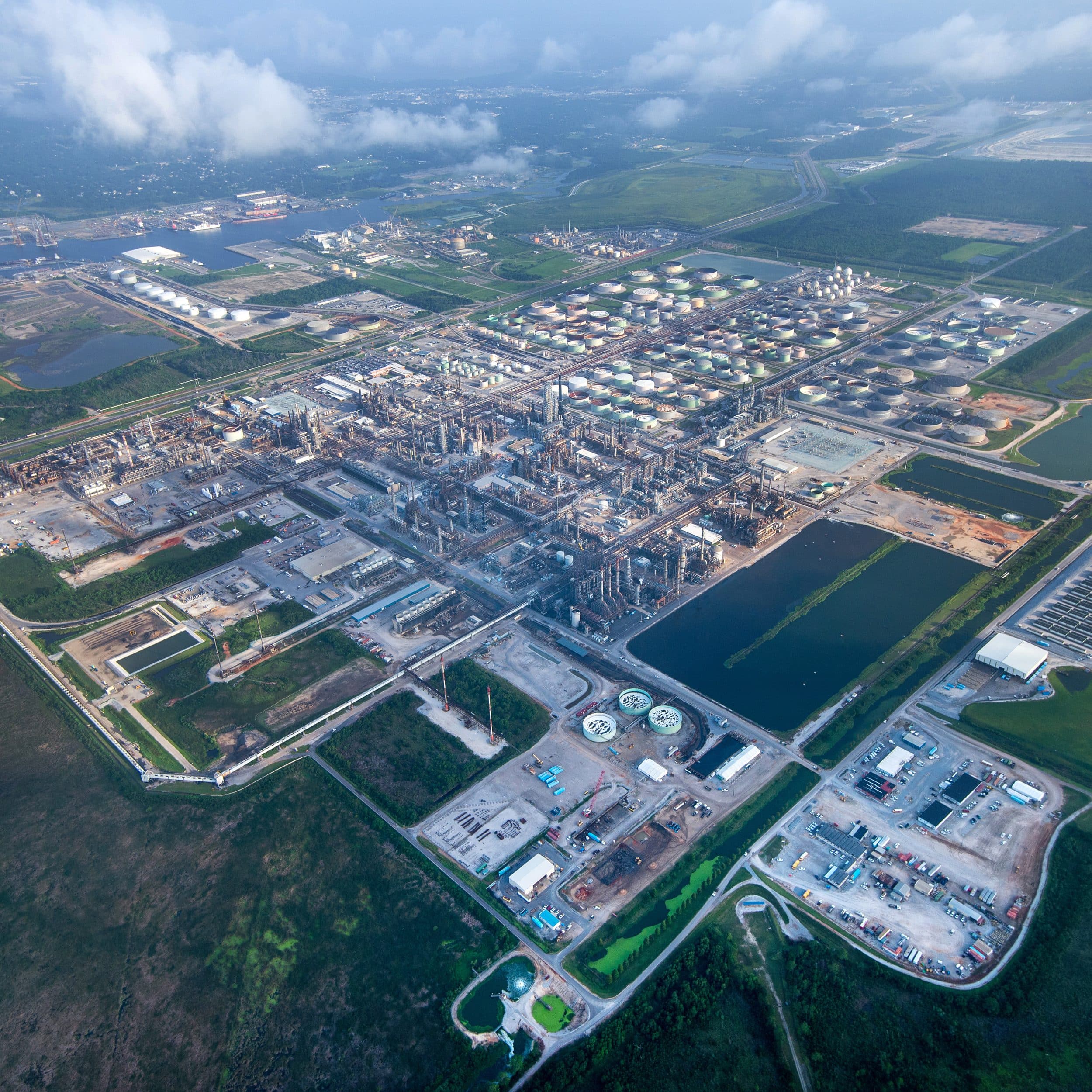Since operations at the refinery began in 1963, Chevron has continued to invest in its Pascagoula facility, and in Mississippi. Over the years, the refinery has evolved; it’s added facilities and upgrades to manufacture the products that supply energy to a growing world. The refinery manufactures nearly 7 million gallons of gasoline every day and in recent years, has reduced its carbon intensity and continues to work toward lower carbon solutions.
In 2023, direct local economic impact in Mississippi was more than $800 million, which includes the refinery’s payroll as well as monies spent on local goods and services.
About Pascagoula CCS
The Pascagoula Refinery Carbon Capture and Storage (CCS) project is making plans to capture carbon dioxide (CO2) from the refinery and safely transport and store those emissions underground, thousands of feet below the Earth’s surface. The pace and scope of this project will in part be determined by policy, technology and market developments.
What is CCS?
In general, carbon capture and storage is the process of capturing CO2, either to prevent it from entering the atmosphere or to directly remove it from the atmosphere, and permanently storing that CO2 thousands of feet underground.
From site selection to responsible design, development, operations and asset retirement, Chevron takes steps to protect people and the environment across each element of a project. *Learn more about CCS: Capturing and Storing Carbon Emissions — Chevron
Our opportunity
Chevron is working to provide affordable, reliable, ever-cleaner energy to meet the world’s rising energy demand. The Pascagoula Refinery, and CCS, both have a role to play in addressing that challenge.
Pascagoula CCS project benefits
Pascagoula CCS could safely capture and store CO2 from the Refinery with ambitions to expand to other industries in the area looking to lower their carbon emissions in the future.
The Pascagoula Refinery is Chevron’s largest U.S. refinery. It has operated for more than 60 years, providing local jobs, supporting the local economy, and supplying energy to meet the region and world’s needs. As demand for energy grows, the Pascagoula Refinery CCS Project could support the refinery’s significant contributions to energy security along the U.S. Gulf Coast into the future.
Learn more about Chevron.




